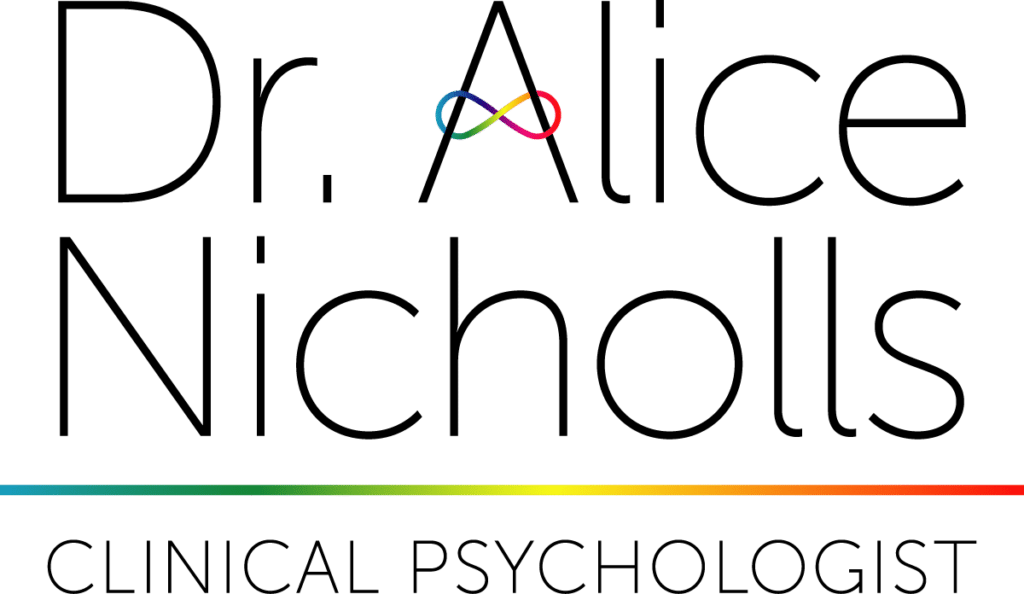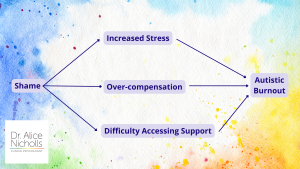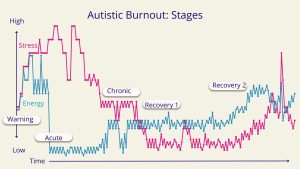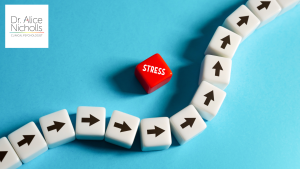What is Autistic Burnout?
Do you keep coming across the term ‘Autistic Burnout’? Maybe you’ve been reading social media posts by autistic people or having conversations about the difficulties Autistic people face.
Or perhaps you are Autistic or have a diagnosis of ASD or Asperger’s Syndrome and are wondering if you are experiencing burnout?
Autistic burnout is a term widely used by members of the Autistic community to describe their experience. But what exactly does it mean?
In this article I will answer these questions:
- What is Autistic Burnout?
- What are the symptoms of Autistic Burnout
- What causes Autistic Burnout?
- Is Autistic Burnout a diagnosis?
- Is Autistic Burnout the same as depression?
- Is Autistic Burnout the same as (neurotypical) burnout?
What is Autistic Burnout?
‘Autistic Burnout’ is a term that has been developed by members of the autistic community to describe an experience that is common among Autistic people.
I have found it a common concern in Autistic people presenting in my clinic and it is one of the most common topics of conversation in facebook groups for Autistic people.
Autistic Burnout describes an experience of extreme depletion in autistic individuals following a period of long term stress or an acutely stressful experience.
What are the Symptoms of Autistic Burnout?
While autistic people experience burnout in different ways there are some key similarities in their accounts. The common symptoms of autistic burnout are:
- Extreme Fatigue
- Loss of Skills
- Decreased Social skills
- Increased Sensory Sensitivities
Extreme Fatigue
Autistic people describe extreme fatigue, the extent of this varies.
People experiencing autistic burnout might feel tired all the time or as if even the smallest tasks require a massive effort. Some people feel so depleted they can’t get out of bed.
Loss of Skills
Many burnt out Autistic people describe a loss of cognitive skills or a decrease in their thinking power. They might have increased difficulty finding words, processing information, solving problems or understanding new concepts.
Some people describe feeling as if they have a ‘brain fog’: everything feels unclear and thinking feels effortful.
Decreased Social Skills
Burnt out Autistic people commonly report a decline in their social skills.
Previously highly social people might find they no longer want to attend so many social events and struggle to hold conversations at their usual level.
People who already found social situations challenging may find they feel unable to cope with the most basic conversations and may even lose their ability to speak.
Autistic people who usually mask may find they are no longer able to do this, or it causes them to feel exhausted after even short periods.
Increased Sensory Sensitivities
For people who already had difficulty with certain noises and textures, these sensitivities can become amplified. Some people become aware of sensitivities they had not noticed before.
Maybe the Autistic person becomes bothered by the noise of the artificial light in their office? Or by the pattern on the wallpaper. They may find being touched makes them feel agitated or angry. Perhaps they have become increasingly aware of how uncomfortable their clothing is.
For more symptoms of Autistic Burnout please download my free Autistic Burnout Symptoms Checklist (ABSC).
What Causes Autistic Burnout?
An Autistic Burnout is the result of long term stress on an Autistic person. A combination of stressors and a lack of adequate support or relief lead to an unsustainable level of stress and eventually burnout.
If we are exposed to moderate – high levels of stress for a long period of time our ability to cope with that stress will deteriorate.
While we are able to cope with brief increases in stress, we need periods of relatively low stress in order to recover and return to our baseline stress levels. If we do not get periods of low stress then we continue to ‘carry’ our stress with us. This means that any additional stress has a cumulative effect and even small stressors can feel unmanageable.
Eventually, if our stress levels are not attended to, we will become exhausted and will no longer be able to function at the same level.
So if Autistic Burnout is caused by stress… What causes the stress?
Autistic people are at particularly high risk of stress for several reasons directly and indirectly caused by being autistic in a neurotypical world. They are, of course, also vulnerable to the stressors neurotypical people face on a daily basis too!
Here are just few of the causes of stress for autistic people:
- Masking
- The Double Empathy Problem
- Sensory Sensitivities and unmet sensory needs
- Executive Functioning Difficulties
- Coping with Change
- Life Events
- Daily Hassles
- Expectations (work, family, society)
In addition to being at risk of stress, autistic people also face barriers to support when trying to manage their stress.
Here are some of the barriers to support for autistic people:
- Gas lighting
- Poor boundary setting/ self advocacy
- Can’t take a break
- Lack of external resources/support services
Is Autistic Burnout a Diagnosis?
You may be wondering if autistic burnout is a diagnosable medical condition. Or if it is even a concept that exists outside of social media posts within the autistic community.
While Autistic Burnout is a common topic of conversation between autistic adults on social media it has not been formally recognised by medical professionals or either of the diagnostic manuals.
People presenting to their GPs with the symptoms of Autistic Burnout may instead end up with a diagnosis of stress, anxiety, depression, chronic fatigue or occupational burnout.
While Autistic Burnout might not be diagnosable, researchers have begun to investigate it as a concept. As with any new terminology, there is always a risk that people using the same language might be referring to different things. With this in mind, a team of researchers (Raymaker et al 2020) interviewed members of the autistic community and analysed social media content describing autistic experiences of burnout.
Researchers found that people describing Autistic Burnout were talking about the same unique causes and symptoms. Raymaker et al (2020) concluded that members of the autistic community were describing a distinct phenomenon that is separate from both depression and occupational burnout.
Using the results of Raymaker et al’s (2020) study and commonly reported symptoms of autistic burnout I have created the Autistic Burnout Symptoms Checklist (ABSC) You can use this to identify how many of the symptoms of Autistic Burnout you have, to discuss with your GP or therapist and to monitor change over time. Click here to download the ABSC.
What is the Relationship Between Autistic Burnout and Depression?
While Autistic Burnout may co-occur with depression it is distinct from it. Historically, Autistic Burnout may have been understood as depression. You may even have been diagnosed with depression by your GP when your symptoms might be more accurately understood as Autistic Burnout.
In 2014 Tony Attwood described several causes of depression in autism, one of which he describes as follows:
‘Resulting from the mental and emotional exhaustion from socialising, not being able to tolerate intense sensory sensitivity and excessive change, and a cognitive style that focuses on what could go wrong which leads to a pessimistic outlook on life’.
(Tony Attwood 2014 p100)
This quote appears to demonstrate both how Autistic Burnout might lead to depression and where the two conditions are similar.
In people where low mood is a feature alongside signs of autistic burnout it is important to treat both conditions. Standard Cognitive Behavioural Therapy for depression commonly involves encouraging people to gradually do more enjoyable and productive activities which could be problematic if the sources of burnout are not addressed.
What is the Relationship Between Autistic Burnout and Occupational Burnout?
Occupational burnout is described by the World Health Organisation as:
‘Feelings of energy depletion or exhaustion; increased mental distance from one job, or feelings of negativism or cynicism related to one’s job; and reduced professional efficacy.’
(WHO website 2021)
Autistic Burnout is described as the result of long term stress on the Autistic or neurodivergent person. What makes it different from occupational burnout is the type of stress.
While someone with occupational burnout will feel chronically stressed due to the pressures of their work, someone with autistic burnout will feel chronically stressed due to the pressures of living and working in a neurotypical world, life stress and coping with social and sensory stressors.
While stress at work may contribute to Autistic Burnout, the causes of Autistic Burnout extend beyond work related issues and relate specifically to the struggles associated with being Autistic in a neurotypical society.
Summary
Autistic Burnout is a frequently discussed phenomenon within the Autistic community. It is not a recognised diagnosis but people talking about it appear to be talking about the same thing.
Autistic Burnout is an experience of extreme fatigue, loss of cognitive and social skills and increased sensory sensitivity. It is caused by prolonged exposure to stress, often caused by the difficulties associated with being Autistic in a neurotypical world.
Autistic Burnout is distinct from depression and occupational burnout but autistic people are also at risk of both of these conditions.
I specialise in working with people experiencing autistic burnout and have written a blog series and an online course to help people recover from autistic burnout. For news of my latest posts and resources please follow me on Facebook or Twitter
For a free downloadable copy of the Autistic Burnout Symptoms Checklist please visit my resources page.
References
Attwood, T., Evans, C.E. & Lesko, A. (2014) Been There, Done That, Try This! An Aspie’s Guide to Life on Earth. Jessica Kinsgsley. London. UK.
I am an Autistic Clinical Psychologist specialising in Autistic Burnout if you would like to know more about my work please check out my:
- Mailing list community for people who want to receive helpful information and resources about Autistic Burnout.
- Free short course on How to Break the Cycle of Autistic Burnout (link goes straight to registration page)
- Authenticity Basecamp: A 90 day support programme for people in the early stages of recovering from Autistic Burnout who want to get calmer, clearer and more supported.
- Authenticity: The Course and Community: For late-realised, high-masking Autistic adults who want to build more sustainable, authentic lives and break free of the cycle of Autistic Burnout for good.











